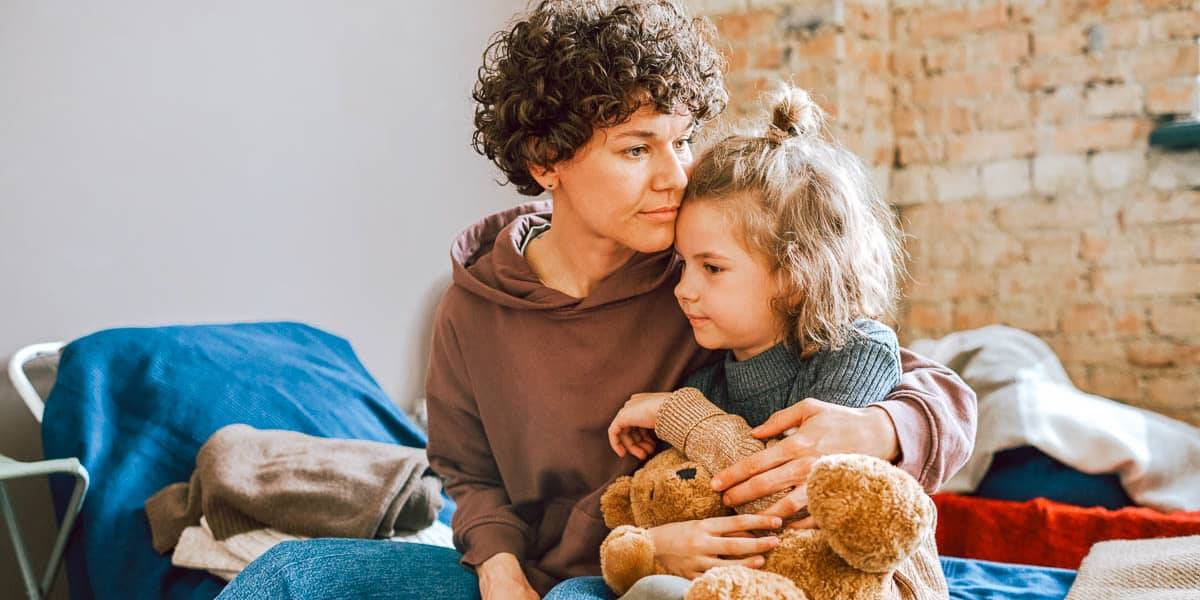Why Do I Have to Take a Parenting Class?

- What is a parenting class?
- Why do some states require parenting classes?
- Topics covered in parenting classes
Divorce is a grueling process for everyone involved. If parents don’t have the tools they need to co-parent collaboratively and raise their children after the divorce is final, life after divorce can become an even bumpier road.
In many instances, the family court recognizes the importance of coping skills and parental education. For this reason, many states offer (and often require) parenting classes for divorcing parents.
You may think, “I already know how to be a parent, so I don’t need that!” The reality is, there is a lot more involved with parenting children of divorce than most people realize. And that’s exactly why parenting classes exist.
What is a parenting class?
A parent education class (or parent seminar) is a class designed to help families deal with the fallout of divorce. These classes give divorcing parents the tools they need to navigate custody arrangements and co-parenting while also providing insight into what kids need during these big family changes.
Parenting classes come in a variety of formats. Some states offer a single class where parents meet with an instructor for one day. Others have a deeper parent education program consisting of multiple classes that span several weeks. Sometimes, parents can choose between an online parenting class and in-person courses.
These classes may be court-ordered, and some states require them even in collaborative divorce cases. However, some divorcing parents elect to take a parenting class on a volunteer basis because they know it will ultimately benefit their children.
Why do some states require divorcing parents to take a parenting class?
Divorce is not easy for children. As more divorcing parents find themselves in high-conflict separation battles, family court has become a major part of resolving issues related to custody, child support, and parenting plans. To ease some of the burden and reduce stress on children, many states require parental education before any divorce can be finalized by the court.
Seventeen states currently require divorcing parents who share minor children to take some form of parent education and family stabilization course. These states are Alaska, Arizona, Colorado, Connecticut, Delaware, Florida, Hawaii, Illinois, Massachusetts, Missouri, New Hampshire, New Jersey, Oklahoma, Tennessee, Utah, Washington, West Virginia, and Wisconsin.
Four other states require divorcing parents with minor children who are undergoing a contested divorce to take a court-ordered parenting class. These states are Idaho, Minnesota, Nebraska, and Virginia.
Benefits of parent education
- Solid suggestions to help develop parenting plans that benefit kids
- Insight to help the family transition to post-divorce life
- Improved relationships between parents and kids
- Increased parental involvement
- Increased positivity and stability at home
- Reduced conflict between co-parents
- Improved communication skills between divorcing parents
- A lower chance of returning to court due to parental conflict
First and foremost, these classes cover topics related to a child’s needs during the divorce process. This gives parents the tools they need to navigate talking to their kids about divorce, handling their reactions, and understanding the emotional issues kids face during and after divorce.
Topics covered in parent education classes
Most parenting classes follow a similar curriculum, spanning everything from the early stages of divorce to co-parenting until the children are fully grown. Specific topics of study may include active parenting, discipline strategies, and dealing with behavioral issues.
A primary goal of parent education is to give divorcing parents the tools they need to successfully co-parent their children once the divorce is finalized. These classes offer insight into drafting a parenting plan that puts children first. They provide education regarding effective communication skills, conflict resolution, and sharing parental responsibility.
All of this insight can help parents establish healthy connections with their children during divorce and hopefully avoid the need for reconciliation counseling later on.
Because it’s hard to know what happens behind closed doors post-divorce, these classes also offer insight for parents on topics related to domestic violence. They show parents how to recognize the signs of child abuse and neglect. They also give parents information on what to do if they suspect a problem with the other parent in a way that isn’t accusatory or inappropriate but keeps the children safe.
Whether your state requires it or not, a parenting class can help you start your new life as a divorced family on the right foot. At Hello Divorce, we’ve spent a lot of time researching and writing about how divorce impacts kids and how parents can create and enact successful parenting plans.
FAQs
Why do courts require parenting classes in divorce cases?
Courts often require parenting classes to help parents learn strategies for supporting children, reducing conflict, and easing the transition during and after divorce.
What do parenting classes teach?
Parenting classes typically cover co-parenting skills, communication techniques, the impact of divorce on children, and ways to reduce stress in the family.
Do both parents have to take a parenting class?
In many jurisdictions, yes. Courts often require both parents to complete a class, either separately or together, depending on the program.
How long does a parenting class take?
The length varies by state and provider. Some classes last a few hours, while others may take several sessions over a few weeks.
Can parenting classes be taken online?
Yes. Many states allow parents to complete court-approved parenting classes online, which can be more convenient than in-person options.
What happens if I don’t complete the class?
Failure to complete a required parenting class may delay your divorce process or affect custody decisions.
Step-by-Step: Completing a Parenting Class for Divorce
Check court requirements
Review your divorce paperwork to confirm whether parenting classes are mandatory and which providers are approved.
Choose an approved class
Select a provider that offers in-person or online options accepted by your court.
Register and attend sessions
Sign up early and complete all required sessions, whether they are one-time or spread across several weeks.
Apply what you learn
Practice communication techniques, co-parenting skills, and strategies to support your children.
Submit proof to the court
Provide the completion certificate to your attorney or directly to the court as required.
Resource
Parenting Coach Elisabeth Stitt on Co-Parenting Success. Hello Divorce.
.png)
Co-parenting? You've got this.
And our free download can help.
Check out these articles for more insights:



